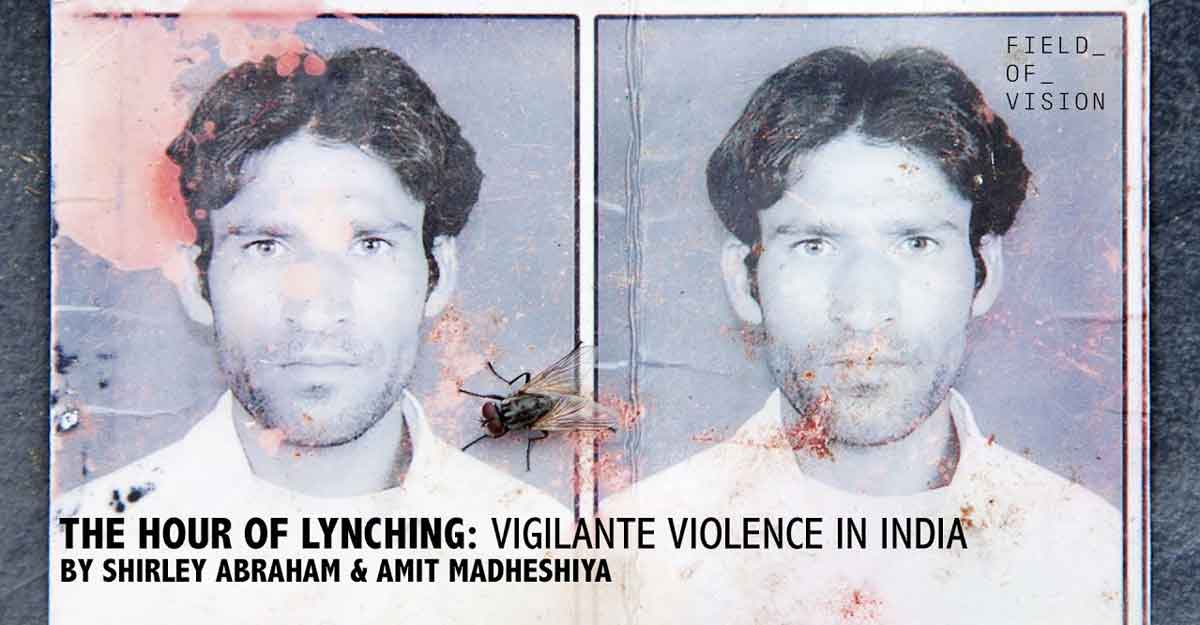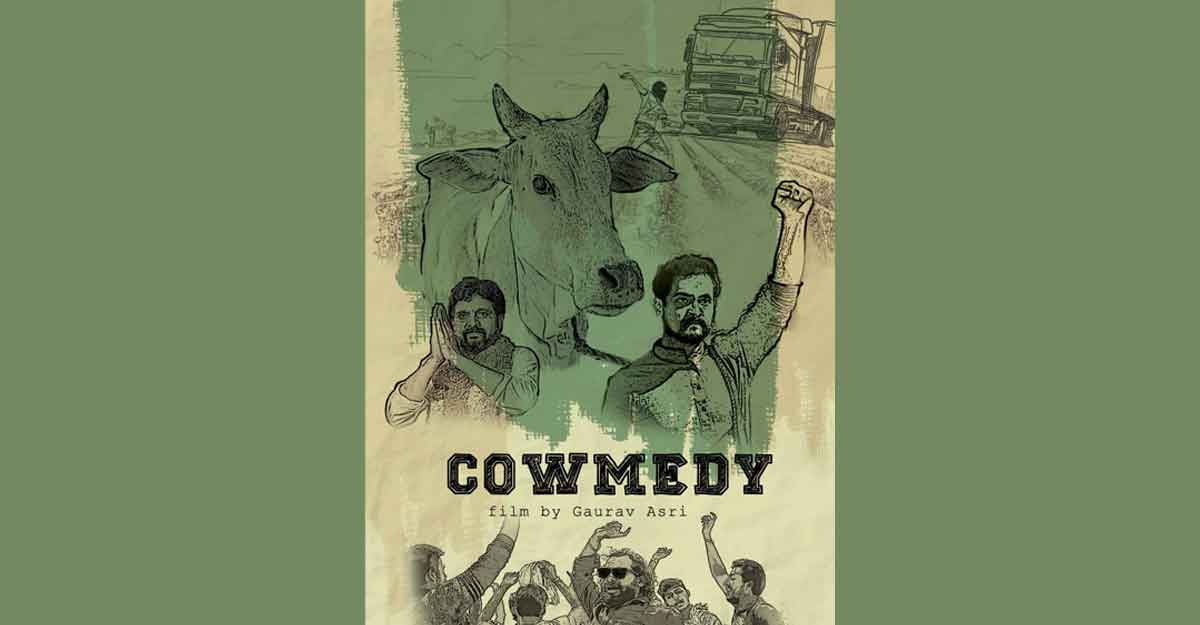Aani Maani, Cowmedy and other films that highlight cow vigilantism and violent right-wing politics

Mail This Article
Director Nagaraj Manjule’s Sairat is currently the highest grossing Marathi film collecting Rs 110 crore from box office. The musical love story deals with the issues of caste discrimination and honour killing by blending the elements of mainstream cinema with some hard-hitting social commentary.
Equally heart-warming film is Fahim Irshaad’s Hindi film Aani Maani. Filmed in the Hindi heartland of UP, which is the hotbed of cow vigilantism and lynching, using guerilla cinematography, the film had impressed critics in the festival circuit.
Sairat was a surprise package by the maker of Fandry, another film that carried loud social commentary about caste discrimination. Its super hit songs are still loved by fans across the country. Its Hindi remake Dhadak, disappointed the audience as it diluted its social messaging and turned it into a pure love story, casting it in a typical Bollywood template.
Cow vigilantism and lynching have been major social issues ever since the Hindu nationalist government took over the reins in 2014. Muslims have been at the receiving end of this right-wing extremism. Some of the documentaries and films about the issue did not see the light of the day, thanks to the covert and overt action of the government that does not want the world to see what their frontal organisations and fringe groups have been doing to the minorities and Dalits whose livelihood is tied to the animal that has been suddenly turned into God.
Bold attempts

One of the documentaries that the government banned include The Hour of Lynching: Vigilante Violence in India, that tells the story of Rakbar, a Muslim dairy farmer who was murdered by a Hindu mob that killed him accusing him of taking a cow to be slaughtered for meat. The documentary includes footage of a BJP lawmaker talking about the act of vigilantes with pride and leaders openly calling for violence and mass murder in the name of nationalism and religion. The Pulitzer Center-supported documentary by Shirley Abraham and Amit Madheshiya is available for viewing online at the website of The Guardian.
Lynch Nation, the 42-minute documentary by Ashfaque E.J., Shaheen Ahmed, Furqan Faridi and Vishu Sejwal was banned by the central government and even its trailers were taken down from YouTube for some time. Right now, the documentary is screened on invitation basis at selected places as it has been reportedly denied a censor certificate and also permission to release online.
Cowmedy, the satirical short directed by Gaurav Asri takes on the issue of vigilantism from the perpetrator’s point of view. This dark comedy explores the life of a cow vigilante who is trying hard to promote himself to the big league of state politics. At a crucial juncture, he is faced with a dilemma: whether to rescue and breed a cow or to look after his political career. Frustration sets in as everyone around him has his own priorities other than paying lip service to ideology and he ends up committing the same crime for which he has been meting out punishment leading mobs.
Why Aani Maani is an important film
Back to Aani Maani. The movie’s title is the name of a game played by kids in Uttar Pradesh in which they revolve in a circling motion akin to the Sufi dervish reciting the rhyme “Aani Maani”. It does not preach politics on your face though it is arguably the finest film made on the issue of cow vigilantism.
The inherent honesty in narrating the struggles of Bhutto, a kebab seller, and his family makes it an exhilarating watch. Bhutto’s life is turned into hell with the beef ban imposed as soon as the Hindu nationalist party comes into power. Vigilante mobs, local politicians, and the police special task force play with the law and ideology at will to use the ban to extract their pound of flesh.
Though you cannot see anything spectacular or extraordinary on screen, an unknown fear grips you even when you see the happy time that family of father, mother, divorced sister and her kid spend with the protagonist and his wife. True to the nature of joint families, the characters here get into arguments, chide one another, crack jokes, sing together and huddle when a crisis hits them.
The family is a happy one though they barely survive. Bhutto was arrested and jailed for years on false charges, thanks to his Muslim identity. When he comes back and stitches a life together, the same forces come back on a different pretext to ruin everything back again. Despite spending all that he had on bribing politicians, police and the vigilantes, he does not get to run his shop. The local politician, after taking money to protect Bhutto, tells him that he may go to Pakistan if he feels he is not safe here.
The film was shot right in the middle of Uttar Pradesh, which is the hotbed of cow terrorism. Getting prior permission from the administration was almost impossible given its theme. They did most of the shooting indoors and took the help of the local people for outdoor shoots. Its lead actor and producer Farrukh Seyer, being a local boy, managed to plan the shoot without attracting any unwanted attention. The scenes that were shot in the bustling streets with patrolling cops and crowd were mostly guerrilla shots.
Current challenges of producing political films

While every film buff appreciates such bold attempts, getting funds for producing a film that could not be assured even an OTT release seems to be the biggest challenge. Cowmedy took the crowd funding route, but making a full-length feature film that requires extensive indoor and outdoor photography through crowd funding is a tougher task. Fahim, Farrukh, lead actress Priyanka Verma and director of photography Shailendra Sahu collaborated without taking remuneration. Even many others in the cast and crew must have done the same. After failing in all attempts to rope in a producer, Farrukh had to borrow money from his father and plan the film on a tight budget. However, to the credit of the makers, you rarely feel the constraints while watching the film.
No amount of news reports and social media posts can narrate a story better than a warm short film or a feature film. Power to the likes of Fahim Irshaad, Farrukh Seyer and Gaurav Asri. May their tribe grow larger across languages and industries.
(Dress Circle is a weekly column on films. The author is a communication professional and film enthusiast. Read his past works here.)

